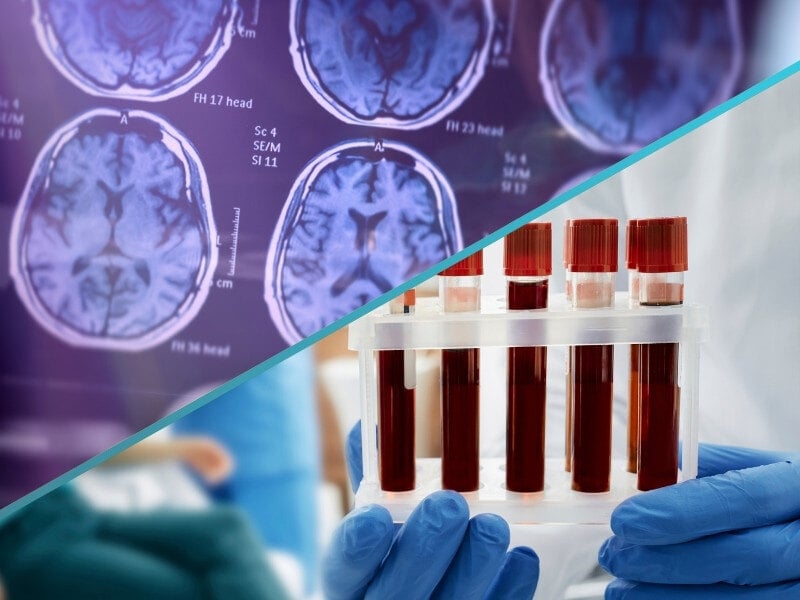Alzheimer's Society Continue £5m Blood Biomarker Challenge for Dementia Blood Tests on NHS

The Alzheimer’s Society has announced that it will continue its work on the Blood Biomarker Challenge: a £5 million award to “revolutionise dementia diagnosis in the UK.”
Together with a collaborative team, the Society will join Alzheimer’s Research UK and the National Institute for Health and Care Research (NIHR) to pilot the use of dementia blood tests in the NHS.
- Feinstein Institutes Links Blood Biomarkers to Psychosis in Alzheimer's Patients
- αSyn-SAA Biomarker Highly Correlated with Dementia with Lewy Bodies
- WHO Publishes Preferred Product Characteristics for Alzheimer’s Blood Tests
- Early Diagnostic Blood Biomarker for Dementia Identified Using Proteomics
Liquid biopsies for diseases which cause dementia have emerged as a powerful diagnostic tool for such diseases. They fill a substantial unmet need as it’s estimated that a third of people living with dementia are currently undiagnosed.
Fiona Carragher, Director of Research and Influencing at Alzheimer’s Society, said: “New drugs targeting early-stage Alzheimer’s disease are just around the corner. But without a diagnosis, people simply won’t be able to access them if they are approved.”
However, there is currently a lack of research to support the full rollout of blood tests for Alzheimer’s in the NHS. The Blood Biomarker Challenge aims to demonstrate the accuracy of blood tests for dementia-causing diseases in UK patients with suspected dementia. It also seeks to ensure that these tests integrate well with the NHS Healthcare system.
Susan Kohlhaas, Executive Director of Research and Partnerships at Alzheimer’s Research UK, said: “We’re sitting on the cusp of a new era of dementia treatments.”
"Doctors are likely going to see more people coming forward for a diagnosis. But the NHS doesn’t possess the required levels of diagnostic infrastructure to cope with this growing demand."
Vanessa Raymont, an Associate Professor at the University of Oxford will lead the team named READ-OUT (REAl world Dementia OUTcomes) to carry out the research. The team will be comprised of Dementias Platform UK researchers from the Universities of Oxford and Cambridge. They’ll test multiple existing and novel blood tests for a range of dementia types in the hopes of validating the diagnostic tool
A second team, ADAPT (Alzheimer's disease Diagnosis and Plasma pTau217), will focus on the protein pTau217 which has proved to be the most promising blood-based biomarker for Alzheimer’s. ADAPT will be led by Professor of Neurology Jonathan Schott and Senior Clinical Research Fellow Ashvini Keshavan at University College London.
Blood tests for Alzheimer’s detect two proteins in the blood: amyloid and tau proteins. People with Alzheimer’s disease have these proteins build up in their brain which then are cleared through cerebrospinal fluid. Amyloid and tau then end up in the blood stream, which researchers are attempting to exploit for the detection of Alzheimer's.
Some researchers have suggested that the blood-brain barrier becomes leaky in Alzheimer’s disease patients, which is how those proteins find themselves in the blood. Another theory suggests that amyloid and tau are produced in other parts of the body which naturally get excreted into the blood.
Carragher added: "This could absolutely revolutionise the way dementia is diagnosed."
With the promising advancements in liquid biopsy technologies and the dedicated efforts of leading researchers, the future holds great potential for early and accurate diagnosis of dementia. These breakthroughs will pave the way for timely interventions and improved outcomes for millions of patients worldwide.





_1.jpg)
